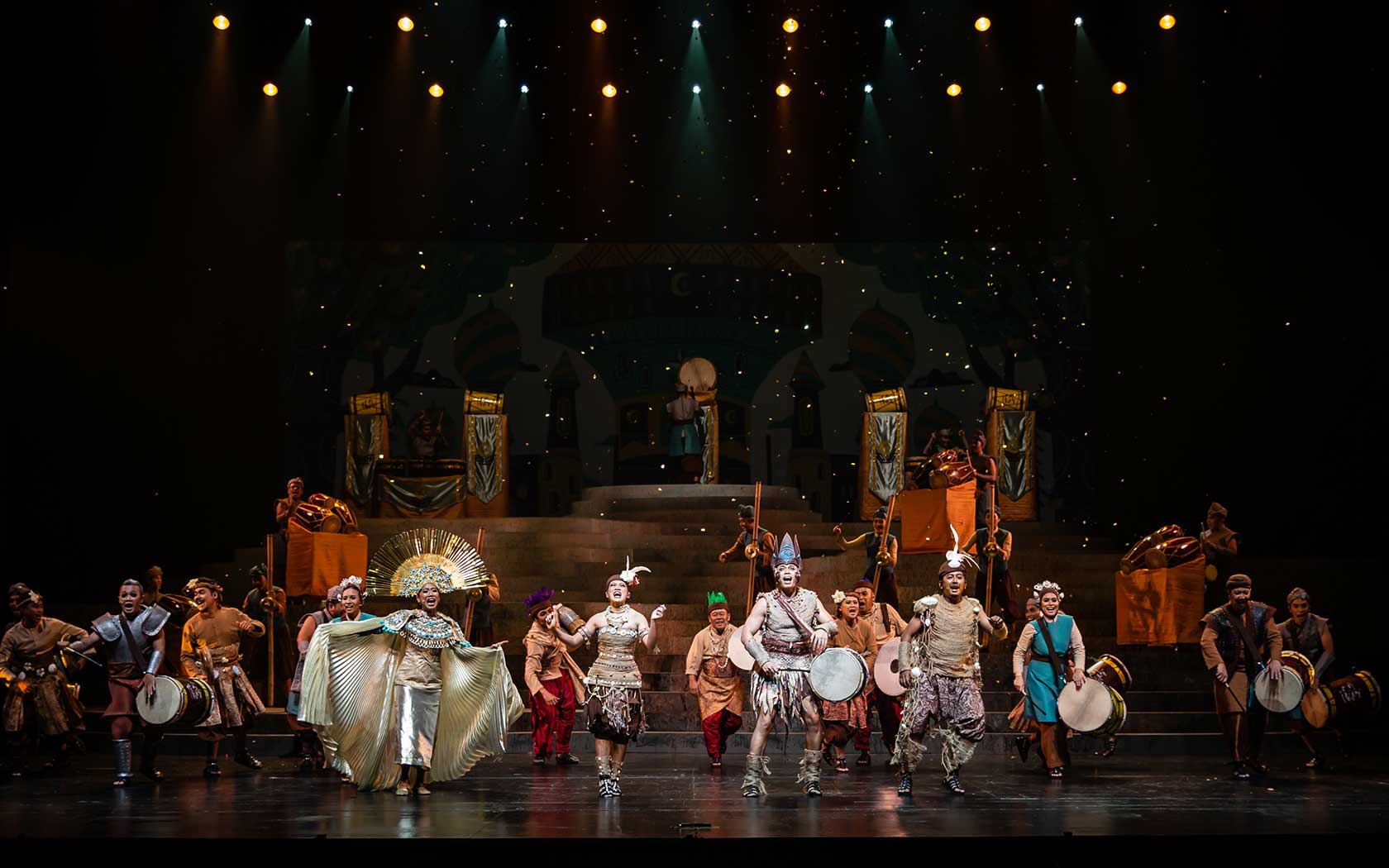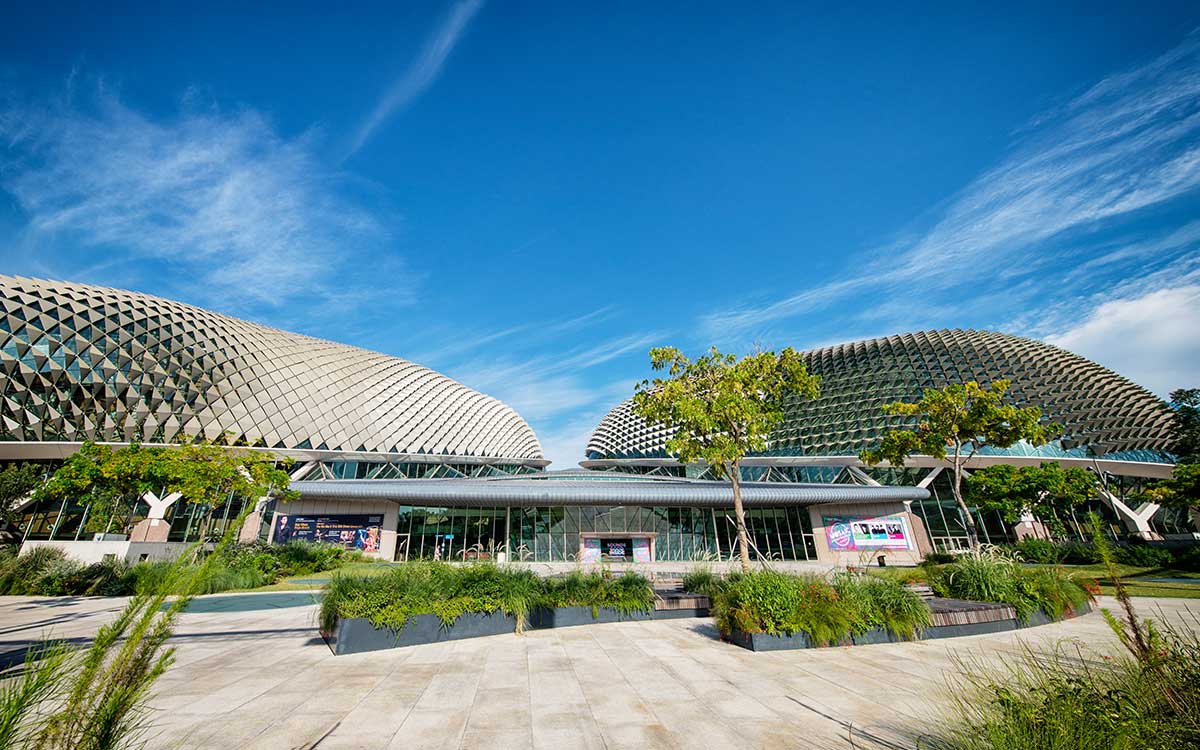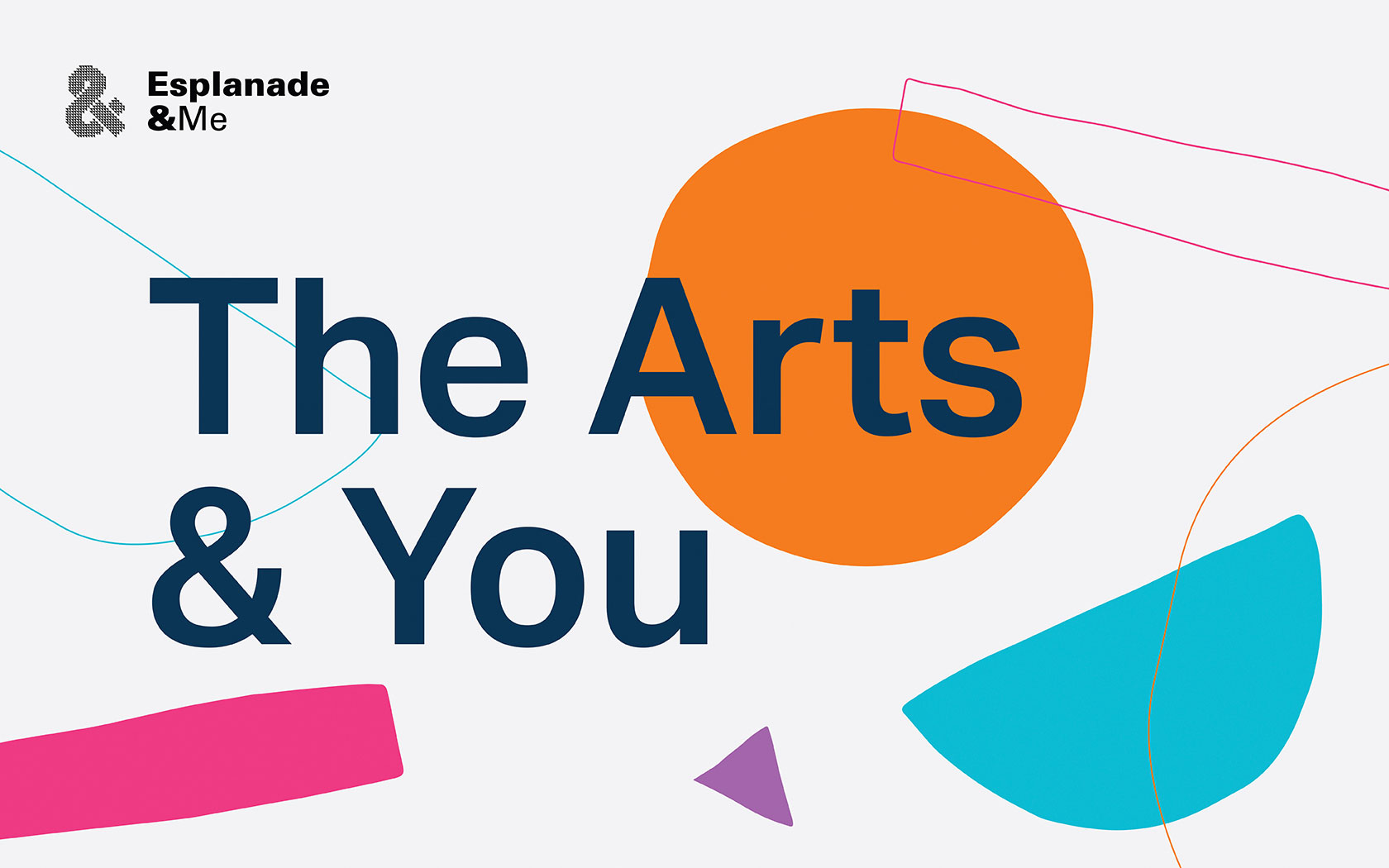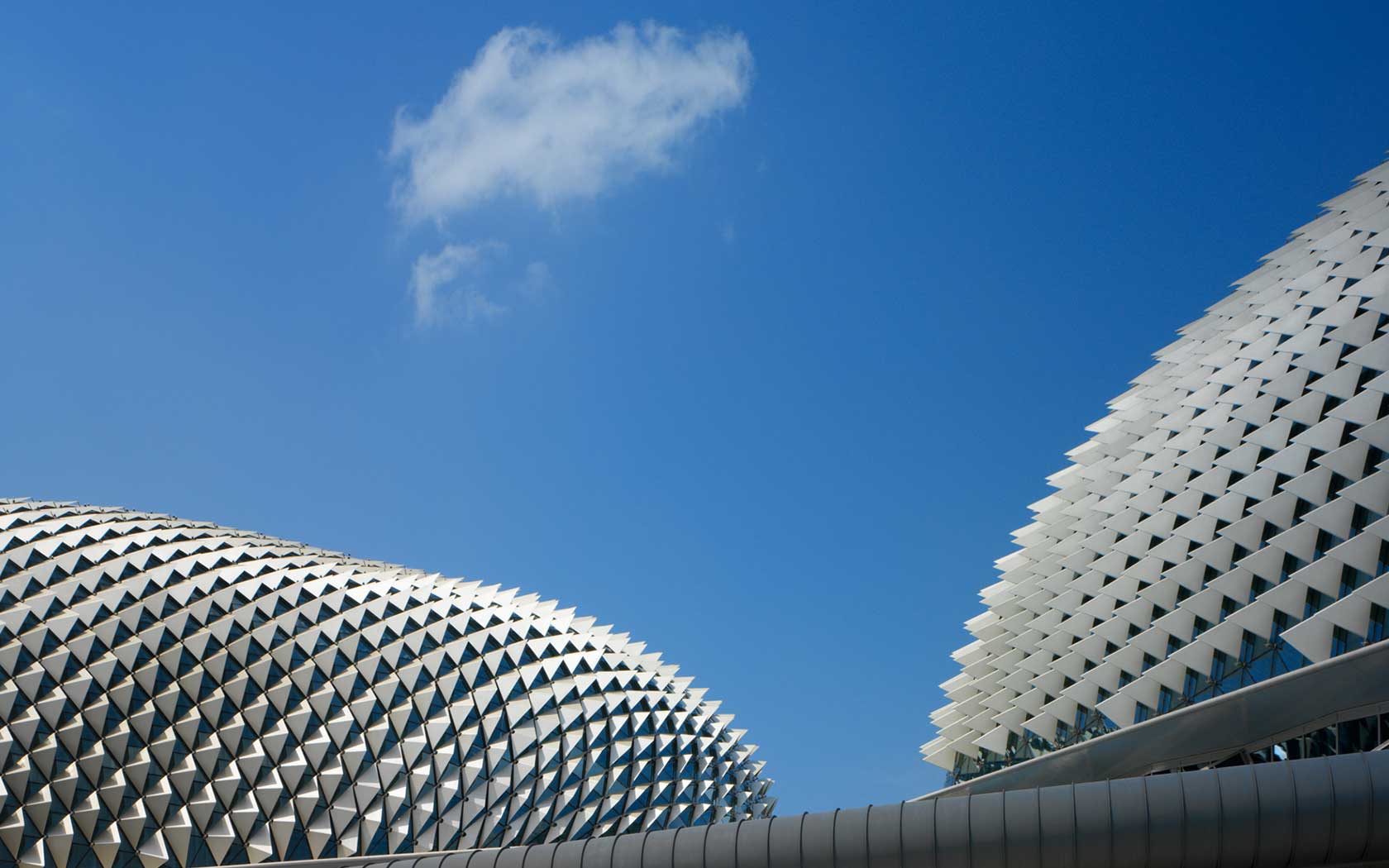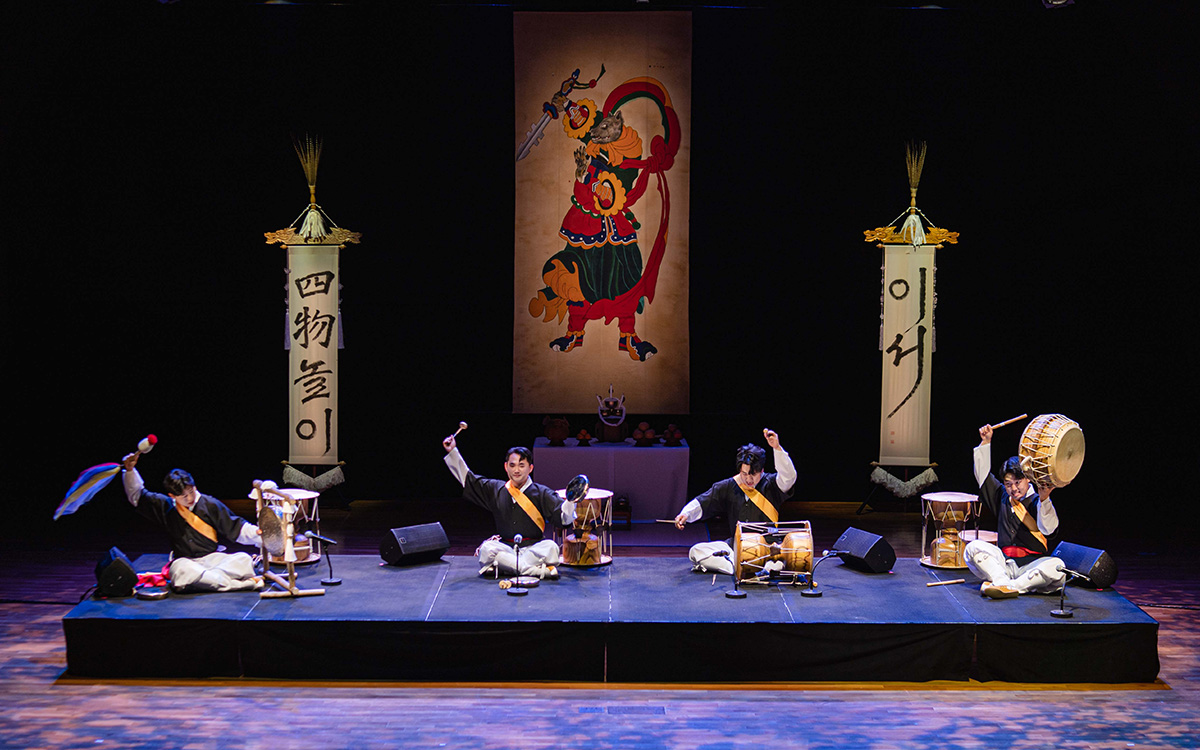We use cookies to improve your experience on our site. To find out more, read our data protection and cookie policy. By using our site, you agree to our use of cookies. Close to continue browsing.
Esplanade Presents
Folk Celebrations of Korea
28 Apr 2023, Fri, 9.30pm
29 Apr 2023, Sat, 6.45pm
(Intermission: None)
DBS Foundation Outdoor Theatre at Esplanade
This event is over.

This event is over.
“Korean dance is more than entertainment. It is an expression of a metaphysical philosophy. Koreans have traditionally believed that the human body is a universe unto itself and that man’s ideal existence lies in harmony with heaven and earth.” - Yi Bo-hyung
Many of the festivals, cultural rituals, types of music and dances of Korea hark back to its agrarian past where farming was a common way of life, and the rhythm and joy of music and dance eased the hardship and monotony of planting, plowing, harvesting and husking. Rather than suppressing their feelings of sadness or struggle, Koreans overcame them through music, dance and prayer.
Loosely translated as “to play four things”, the folk art form samulnori involves the playing of four percussive instruments: jing (large gong), k’kwaenggwari (small brass gong), jang-gu (hour-glass drum) and buk (barrel drum). The four together represent cosmic harmony: a belief represented in a Korean folktale in which a king, his two daughters and two sons save their kingdom from the ash monster by obtaining treasures from the four guardians of east, west, north and south. These four treasures are the percussive instruments that produce harmony when played together.
Today samulnori is not practised as a way of life in modern Korea, but performed as a staged art, appearing on occasions such as festivals, parades and cultural concerts.
Performing at this year’s A Tapestry of Sacred Music are advocates and practitioners of this folk art form, Variety E-SEO. The quartet presents a representative piece of samulnori, Binari, which was sung for happiness, health and wealth by troupes who travelled around villages. This performance is a prayer for global peace as well as the health and longevity of all festival attendees. The group will also perform Pangut, which demonstrates harmony and precision of its performers. See a variety of formations and brilliant movements, produced by the spinning the sangmo (a hat with feathers or paper streamers). The performance culminates in solo acts that showcase each performer’s skills.
How samulnori came to be
Meant to motivate, farmers’ music (known as nongak or p’ungmul nori), usually performed by farmers’ bands, was typically rhythmic, vigorous and exuberant. It was also a form of folk ritual and entertainment. At that time, another kind of grassroots musical entertainment came in the form of the dramatic musical performances of wandering entertainers called sadang. Sadang (males were called “nam-sadang” and females “yo-sadang”) typically travelled to rural villages where they performed puppet plays, masked dramas, acrobatic stunts and shamanistic rituals. Their music and dances were absorbed into nongak over time and the recent result is what is now known as samulnori, a modernised fusion of nongak and sadang.
The music of samulnori
The jing is a large gong that provides the basic beats and was, in ancient times, used to sound warnings to villagers or rally them together. The k’kwaenggwari is a small brass gong which leads all rhythm and tempo changes, while the jang-gu is a shoulder-held, double-sided hourglass-shaped drum which plays the most complex rhythm patterns. Rounding up the four, the buk is a barrel drum which plays the bass rhythms. Each instrument represents a natural element (lightning, wind, rain and clouds respectively); two of the instruments are metal or “yang” (symbolising masculinity and brightness) in nature, two are leather or “yin” (symbolising femininity and darkness).
No tickets will be issued. Seats are available on a first-come, first-served basis.
Variety E-SEO
Variety E-SEO comprises four members, Wi Yeonseung, Moon Do-yeon, Park Hyun-ki and Jin Seung-hoon, who specialise in and perform the samulnori repertoire. Advocates and proponents of this traditional folk art form, Variety E-SEO is focused on the transmission of samulnori without loss of its ancestry and legitimacy. Recognised for their artistry by and disciples of samulnori master Kim Duk-Soo, they have performed not only in Korea but have also been invited to perform internationally, at events such as Edinburgh Fringe Festival 2022 and Oakland Arts Festival 2023.
28 Apr 2023, Fri
9.30pm
29 Apr 2023, Sat
6.45pm
ESPLANADE OFFSTAGE
Read, watch, listen

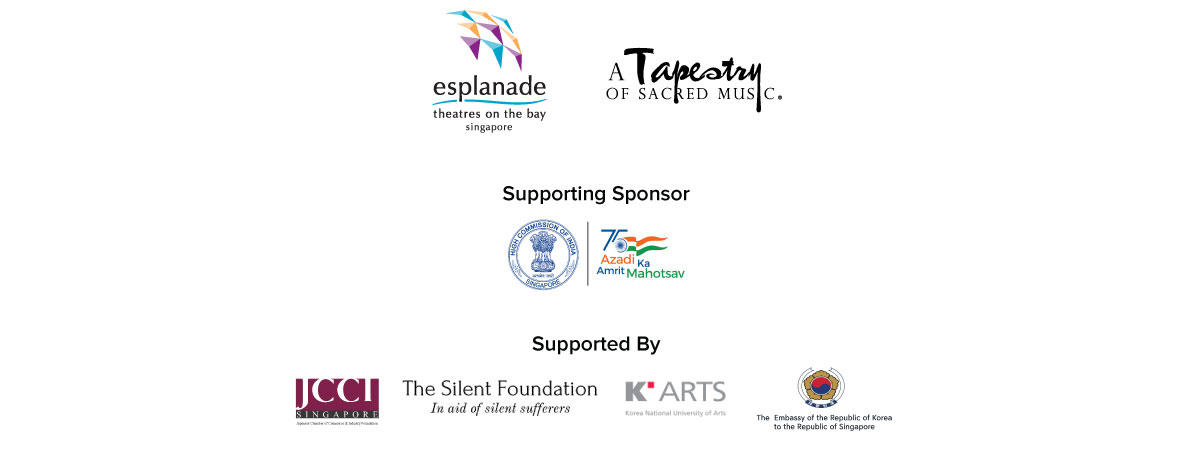
Become a member

Great arts experiences begin with Esplanade&Me. Join this membership to enjoy ticket specials on shows at Esplanade, early bird specials, promotions at Esplanade Mall, unlimited access to Offstage and more.

Never miss a show again. Get on our mailing list.
- Folk Celebrations of Korea

